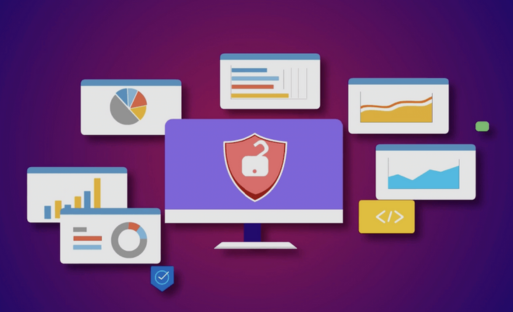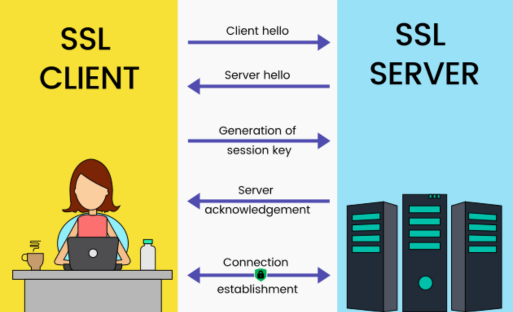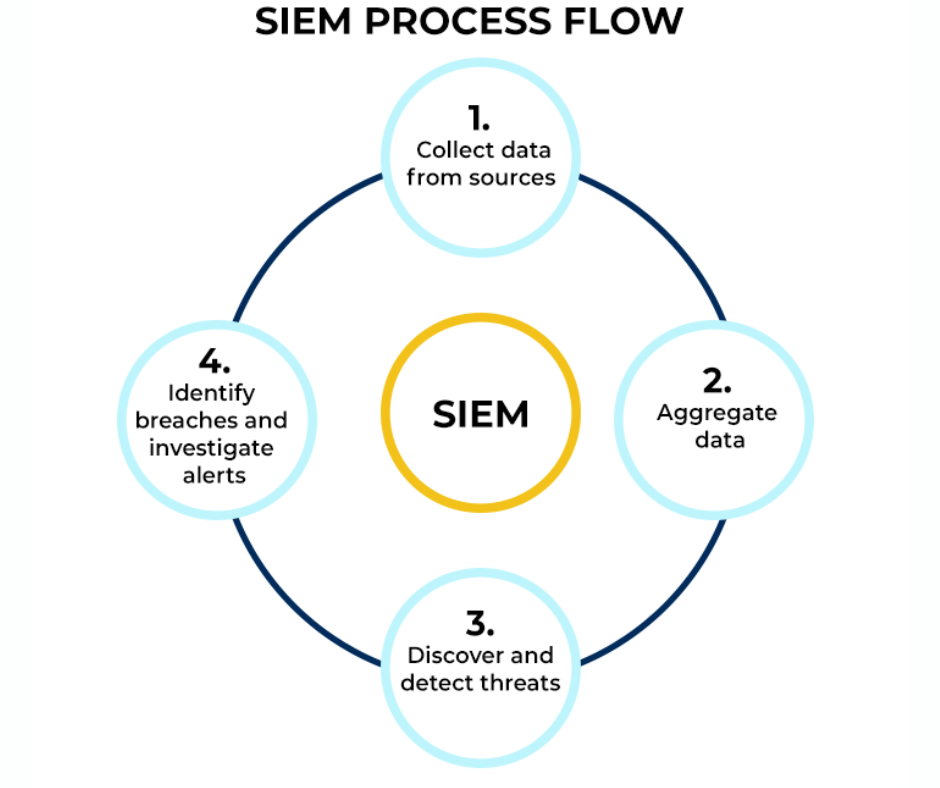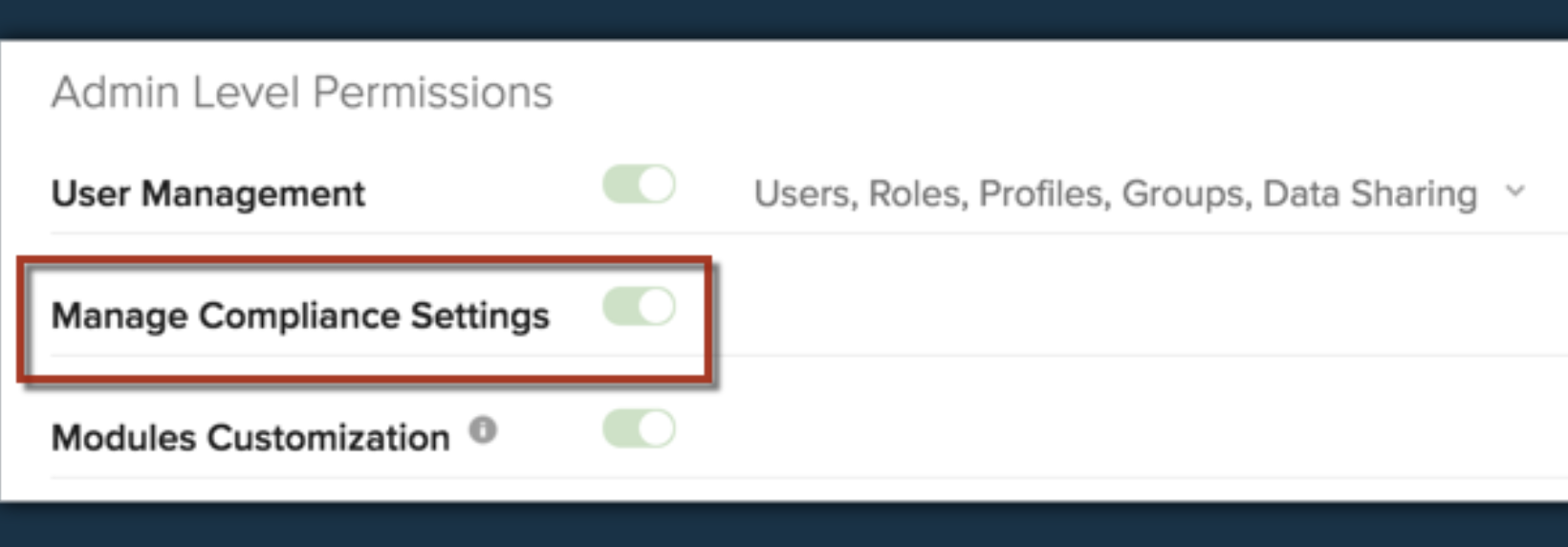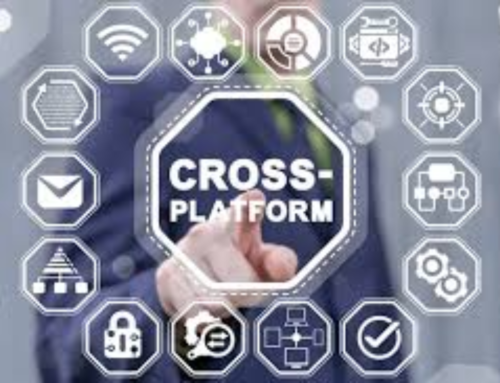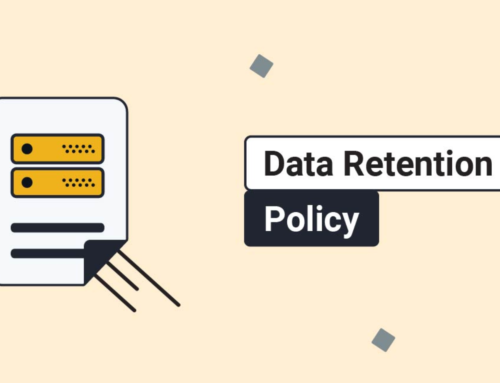Introduction to Zoho Workplace Security Features and Solutions:
In the contemporary landscape of remote work and digital collaboration, the security of online platforms has become a paramount concern for businesses of all sizes. Zoho Workplace, a comprehensive suite of productivity and collaboration tools, has emerged as a robust solution for organizations seeking a secure and efficient digital workspace.
Understanding Zoho Workplace:
Overview of Zoho Workplace:
Zoho Workplace stands as a comprehensive solution provided by Zoho Corporation, a renowned software company known for its cloud-based applications. Zoho Workplace is designed as an integrated suite, offering a range of tools to streamline and enhance business operations. This suite encompasses various key components, each catering to specific needs within a digital workspace. Notable elements include Zoho Mail, an email platform; Zoho Docs, a document management system; Zoho Cliq, a communication and collaboration tool, among others. The suite is crafted to provide organizations with a seamless and interconnected set of applications to foster productivity and efficiency.
Importance of Security in the Digital Workspace:
The contemporary business landscape has witnessed a significant shift towards remote work, transforming the traditional office setup. In light of this evolution, the implications of remote work on data security cannot be overstated. The rise of remote work introduces new challenges and vulnerabilities, making cybersecurity a paramount concern for organizations. Zoho Workplace acknowledges this shift and places a strong emphasis on security within its digital workspace.
In the digital era, cybersecurity threats are on the rise, becoming more sophisticated and pervasive. From ransomware attacks to phishing schemes, organizations face a myriad of risks that can compromise sensitive data and disrupt operations. Zoho Workplace recognizes the evolving nature of these threats and addresses them through robust security features embedded within its suite of applications.
The need for a secure and collaborative platform is imperative in the contemporary workspace. As organizations increasingly rely on digital tools for communication, document sharing, and collaboration, ensuring the integrity and confidentiality of information becomes crucial. Zoho Workplace aligns with this need, providing users with a secure environment where they can collaborate seamlessly without compromising on data protection. By integrating security measures into its suite, Zoho Workplace aims to offer not only efficiency and collaboration but also peace of mind in an era where safeguarding digital assets is paramount.
Zoho Workplace Security Architecture:
Data Encryption and Transmission:
Zoho Workplace prioritizes the security of data through robust encryption mechanisms. In Zoho Mail, end-to-end encryption is implemented, ensuring that communication remains confidential and protected from unauthorized access. This feature is pivotal in safeguarding sensitive information exchanged through email channels. Additionally, Zoho employs Secure Socket Layer (SSL) for data transmission, adding an extra layer of protection during the exchange of data between users and Zoho servers. Encryption protocols are meticulously integrated into Zoho Docs, further fortifying the security of documents and files stored within the platform. This comprehensive approach to data encryption and transmission underscores Zoho’s commitment to maintaining the integrity and confidentiality of user information.
Multi-Factor Authentication (MFA):
Zoho Workplace places a strong emphasis on bolstering login security by implementing Multi-Factor Authentication (MFA). MFA requires users to provide multiple forms of identification before granting access, significantly reducing the risk of unauthorized account access. Users can configure MFA within Zoho Workplace, adding an extra layer of defense against potential cyber threats. The benefits of MFA are manifold, ranging from heightened security to reduced susceptibility to phishing attacks. By requiring users to authenticate their identity through multiple means such as passwords, biometrics, or security tokens, Zoho enhances the overall resilience of its security infrastructure.
Identity and Access Management (IAM):
Zoho Workplace incorporates robust Identity and Access Management (IAM) measures to regulate and secure user access. The platform employs role-based access control, allowing administrators to define roles with specific access privileges. This ensures that users have the appropriate level of access based on their responsibilities within the organization. IAM also facilitates efficient user provisioning and de-provisioning, streamlining the onboarding and offboarding processes. Monitoring and auditing user activity is a crucial aspect of IAM, providing administrators with insights into user behavior and potential security risks. Zoho Workplace’s IAM framework exemplifies a proactive approach to managing user identities and access rights, contributing to a more secure digital workspace.
Zoho Workplace Threat Detection and Prevention:
Zoho Workplace Threat Detection and Prevention is a comprehensive security solution designed to safeguard organizations from various cyber threats. The platform encompasses advanced features across different aspects of threat protection, ensuring a robust defense against potential security risks.
Advanced Threat Protection:
One key component of Zoho Workplace’s security arsenal is its Advanced Threat Protection. This includes sophisticated email filtering and anti-phishing measures, aimed at preventing malicious emails from reaching users’ inboxes. By leveraging advanced algorithms and pattern recognition, Zoho Workplace actively identifies and neutralizes phishing attempts, reducing the likelihood of users falling victim to such attacks. Additionally, the system employs real-time threat detection within Zoho Cliq, the collaborative communication tool, to provide instant protection against emerging threats. It goes a step further by identifying and blocking malicious attachments, preventing potential malware infections.
Security Incident Response:
Zoho Workplace takes a proactive stance in dealing with security incidents. The platform facilitates efficient incident detection and reporting, ensuring that any potential threats are promptly identified and communicated to the relevant stakeholders. Automation plays a crucial role in the incident response mechanisms, streamlining the process of addressing and mitigating security incidents. Furthermore, Zoho Workplace integrates seamlessly with security information and event management (SIEM) systems, enhancing the overall visibility and coordination in responding to security incidents. This integration enables organizations to have a centralized and holistic approach to managing security events.
Security Awareness Training:
Recognizing the human element in cybersecurity, Zoho Workplace includes a robust Security Awareness Training component. This involves providing educational resources for users, empowering them with the knowledge and skills necessary to recognize and respond to potential security threats. The platform incorporates simulated phishing exercises, allowing users to experience and learn from simulated attack scenarios in a controlled environment. This hands-on approach enhances user resilience against real-world phishing attempts. Moreover, Zoho Workplace promotes continuous learning by embedding security awareness training directly into the working environment, ensuring that users stay informed about the latest security best practices and threats specific to their workspace.
Zoho Workplace’s Threat Detection and Prevention features are multifaceted, encompassing advanced threat protection, efficient incident response mechanisms, and a comprehensive security awareness training program. By addressing various aspects of cybersecurity, Zoho Workplace provides organizations with a holistic and proactive approach to safeguarding their digital assets and ensuring a secure collaborative work environment.
Compliance and Regulatory Standards:
Compliance and regulatory standards are critical aspects for any organization, ensuring that they adhere to legal requirements and industry-specific guidelines. In the case of Zoho Workplace, it places a strong emphasis on meeting these standards to provide users with a secure and trustworthy environment.
GDPR Compliance:
Zoho Workplace aligns itself with the General Data Protection Regulation (GDPR), a comprehensive data protection law applicable in the European Union (EU). The platform incorporates robust data protection features to uphold GDPR principles. This includes mechanisms to obtain user consent, ensuring that individuals are aware of and agree to the processing of their personal data. Additionally, Zoho Workplace emphasizes data transparency, enabling users to have clear visibility into how their information is handled within the platform.
HIPAA Compliance:
Recognizing the sensitivity of healthcare data, Zoho Workplace prioritizes compliance with the Health Insurance Portability and Accountability Act (HIPAA). The platform incorporates stringent security measures to safeguard healthcare information. Zoho Workplace offers features and solutions that are HIPAA-compliant, ensuring that healthcare organizations using the platform can maintain the confidentiality and integrity of patient data. This commitment to HIPAA compliance is vital for building trust in the healthcare sector, where data security is of utmost importance.
Other Regulatory Compliance:
In addition to GDPR and HIPAA compliance, Zoho Workplace extends its commitment to adhering to various industry-specific standards. Recognizing the global nature of business operations, the platform ensures compliance with international data protection regulations. This broad approach allows Zoho Workplace to cater to users across diverse industries, providing them with a secure and compliant environment. Zoho Workplace’s dedication to regulatory compliance underscores its commitment to data protection, instilling confidence in users that their information is handled with the utmost care and in accordance with relevant standards.
Zoho Workplace’s focus on compliance with GDPR, HIPAA, and other regulatory standards demonstrates its dedication to providing a secure and reliable platform for users. By incorporating specific features and solutions tailored to different regulatory frameworks, Zoho Workplace aims to create a trustworthy environment where organizations can confidently manage their data in accordance with legal and industry requirements.
Zoho Workplace Security Best Practices:
Zoho Workplace emphasizes several key security best practices to ensure the protection of its users and their data. These practices can be broadly categorized into three main areas: User Education and Training, Regular Security Audits and Assessments, and Collaboration with IT Security Experts.
User Education and Training:
One of the foundational pillars of Zoho Workplace’s security strategy is user education and training. Zoho recognizes the critical importance of cultivating user awareness in security matters. To achieve this, the platform offers comprehensive training programs designed to educate users about various security threats, best practices, and the importance of adhering to security protocols. These training initiatives are geared towards creating a security-conscious organizational culture, where employees are actively engaged in safeguarding sensitive information and are equipped to make informed decisions that contribute to the overall security posture.
Regular Security Audits and Assessments:
Zoho Workplace places a strong emphasis on conducting regular security audits and assessments to identify and address potential vulnerabilities. These audits encompass both internal and external evaluations, ensuring a thorough examination of the platform’s security infrastructure. The internal audits help in identifying and rectifying any weaknesses within the organization, while external assessments involve third-party experts scrutinizing Zoho Workplace’s security measures. The commitment to continuous improvement is evident, as Zoho utilizes findings from these audits to refine and enhance its security protocols, ensuring that the platform evolves to meet the ever-changing landscape of cybersecurity threats.
Collaboration with IT Security Experts:
Zoho Workplace actively collaborates with external IT security experts and consultants to fortify its security measures. This collaborative effort involves engaging with seasoned professionals who specialize in cybersecurity. By leveraging the expertise of external consultants, Zoho aims to stay ahead of emerging security challenges and proactively address potential threats. This partnership fosters a dynamic approach to security, where Zoho is not only responsive to existing threats but also anticipates and prepares for future challenges. The collaboration underscores Zoho’s commitment to maintaining a robust and adaptive security infrastructure.
Zoho Workplace’s security best practices encompass a holistic approach that integrates user education, regular audits, and collaboration with external experts. By focusing on these three pillars, Zoho aims to create a secure environment for its users and continually enhance its security protocols to meet the evolving demands of the digital landscape.
Real-world Case Studies:
Success Stories of Zoho Workplace Implementation:
Zoho Workplace has demonstrated its effectiveness in various organizations, with success stories highlighting its versatile applications and positive impact on business operations. These success stories serve as valuable examples for businesses considering the implementation of Zoho Workplace.
Enhancing collaboration in a distributed team:
One compelling success story revolves around a company that successfully enhanced collaboration within its distributed team through the implementation of Zoho Workplace. The platform’s integrated suite of applications, including document collaboration, project management, and communication tools, played a pivotal role in breaking down geographical barriers. This case study sheds light on how Zoho Workplace fosters a collaborative environment, allowing team members to seamlessly work together, share ideas, and contribute to projects in real time, irrespective of their physical locations.
Securing sensitive data in a financial institution:
In the realm of security and data protection, Zoho Workplace has proven its mettle in a case study involving a financial institution. The implementation of Zoho Workplace contributed significantly to securing sensitive financial data, ensuring compliance with regulatory requirements, and safeguarding against potential cyber threats. This success story underscores the robust security features embedded in Zoho Workplace, making it a reliable choice for organizations dealing with sensitive information, such as financial data.
Insights from organizations using Zoho Workplace:
Beyond specific case studies, a broader analysis of insights from various organizations using Zoho Workplace provides a comprehensive view of its impact across diverse sectors. These insights delve into the challenges faced by different businesses, the specific Zoho Workplace applications that addressed those challenges, and the resulting improvements in efficiency, productivity, and overall business performance. By examining a range of experiences, organizations can gain a nuanced understanding of how Zoho Workplace can be customized to meet their unique needs and objectives.
The success stories and insights from organizations utilizing Zoho Workplace showcase its adaptability and effectiveness in addressing a variety of challenges. Whether it’s promoting collaboration in distributed teams or fortifying data security in a financial institution, Zoho Workplace emerges as a versatile solution that empowers organizations to thrive in the ever-evolving business landscape.
Future Trends in Zoho Workplace Security:
Evolving Threat Landscape:
In the ever-changing realm of cybersecurity, staying ahead of emerging threats is crucial. Zoho Workplace Security recognizes the dynamic nature of the threat landscape and adopts a proactive approach to security updates. By constantly monitoring and analyzing the evolving challenges, Zoho ensures that its security measures are not only up-to-date but also anticipate potential threats. This commitment to staying ahead of the curve is essential in providing users with a secure environment for their work. Future-proofing Zoho Workplace involves implementing measures that not only address current threats but also establish a resilient framework capable of adapting to future challenges.
Integration of Artificial Intelligence (AI) and Machine Learning (ML):
To enhance security measures, Zoho Workplace integrates cutting-edge technologies like Artificial Intelligence (AI) and Machine Learning (ML). AI is employed for threat detection, leveraging its ability to identify patterns and anomalies in user behavior that may indicate a security risk. Machine Learning, on the other hand, is utilized for anomaly detection, continuously learning from patterns to improve accuracy over time. The integration of AI and ML not only strengthens Zoho’s security infrastructure but also ensures a proactive and adaptive defense against emerging threats. This commitment to technological advancement reflects Zoho’s dedication to providing state-of-the-art security solutions.
Community and User Feedback:
User feedback plays a pivotal role in enhancing security measures, and Zoho Workplace recognizes the importance of community engagement. Zoho actively encourages users to provide feedback through community forums and other channels. The collaboration between the user community and Zoho’s security experts fosters a transparent and collaborative approach to security. By actively listening to user concerns and experiences, Zoho can identify potential vulnerabilities or areas for improvement that might go unnoticed through traditional means. This user-centric approach not only enhances the overall security of Zoho Workplace but also builds a sense of trust and transparency between the platform and its user base. The community forums serve as a valuable space for users to share insights, ask questions, and contribute to the collective effort of creating a robust and secure working environment. In essence, Zoho Workplace is not just a product but a collaborative security ecosystem where user feedback is a driving force for continuous improvement.
Conclusion:
In conclusion, Zoho Workplace stands out as a comprehensive and secure digital workspace solution, catering to the evolving needs of modern businesses. By prioritizing data encryption, implementing advanced threat detection, and ensuring compliance with industry standards, Zoho Workplace provides organizations with a robust platform for collaboration without compromising security. As the digital landscape continues to evolve, Zoho Workplace remains at the forefront, adapting and innovating to address emerging cybersecurity challenges and fortifying the foundations of the digital workspace.
Zoho Workplace employs encryption protocols such as SSL/TLS for data transmission, and data at rest is encrypted using industry-standard algorithms. This ensures that your sensitive information remains confidential and secure.
Yes, Zoho Workplace provides role-based access controls, allowing you to define and manage access permissions for individuals or groups. This helps you control who can view, edit, or share specific documents and folders.
Yes, Zoho Workplace complies with various data protection regulations, including GDPR. They have implemented features and controls to help users meet their compliance requirements.
Zoho Workplace offers multi-factor authentication (MFA), an additional layer of security beyond just a username and password. This helps prevent unauthorized access even if login credentials are compromised.
Yes, Zoho Workplace apps include secure collaboration features. Files are encrypted during transfer and storage, and you can control access permissions to ensure that only authorized individuals can collaborate on or access shared files.
Zoho Workplace incorporates advanced threat protection features, including email filtering to detect and block phishing attempts and malware. Regular security updates are also applied to keep defenses current.
Yes, Zoho Workplace provides audit logs and reporting features, allowing administrators to monitor user activities, track changes, and generate reports for compliance and security purposes.
Zoho Workplace employs a robust infrastructure with multiple data centers and redundant systems to ensure high availability. They also have disaster recovery measures in place to minimize service disruptions in case of unforeseen events.
Zoho is committed to staying ahead of security threats. They regularly update their security features and protocols to address emerging threats and vulnerabilities, ensuring that users benefit from the latest security measures. Users are also encouraged to keep their applications and devices updated for optimal security.
